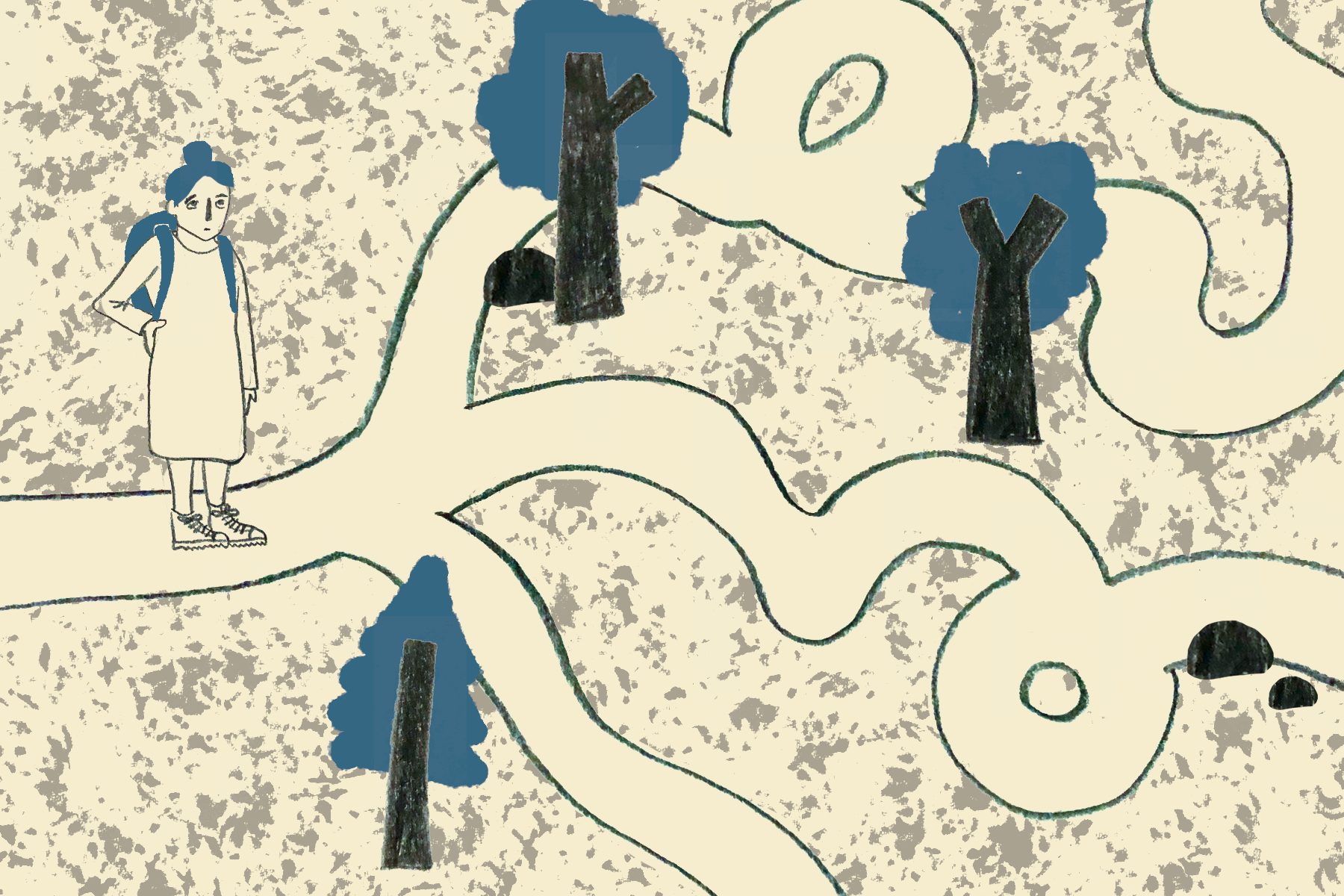The pandemic has disrupted everyone’s sense of normalcy and cast uncertainty over the future, especially for young adults. The return to childhood homes has been a time of confusion, anxiety and soul searching. Expectations for the final years of college have been turned upside down, and isolation away from friends has caused feelings of sadness and loneliness. In addition, the daunting state of the job market has led many students to question their post-grad plans. Having plans upended is unsettling to say the least, but there is a way to move forward more confidently. Life narratives, as opposed to rigid paths or ideologies, can help you learn to live life in the face of change.
Put simply, life narratives are the stories that inform your life and the way you live it. While many assume they must develop specific value systems and adhere to them strictly in order to live a good life — as in the case of a religious or philosophical creed — living by a narrative provides more flexibility while still giving direction. It allows you to adapt to the things you cannot control and to respond to them in ways that are in line with the values of your narrative.
In some ways, I have always seen my life in narrative terms. Ever since I was young, I have been captivated by storytelling. Stories have been the portals through which I have learned about myself, developed my values and cultivated empathy for others. Satisfyingly, my favorite childhood stories had narrative arcs that took their characters on journeys and revealed to them facets of life they had not previously considered. Every time, the characters learned something from those journeys about themselves.
These stories impacted me because I identified myself in them. My most beloved characters faced obstacles they could have never seen coming, and yet somehow managed to overcome them. We overcome challenges throughout our lives, too. Perhaps we are not as heroic as fictional characters, but we must respond to unexpected situations and get by as best we can. Sometimes, these instances disrupt the carefully curated images of our lives that we construct.
The pandemic certainly did that to me, revealing the faults in the supposed narrative way I was living. Before the pandemic, I would picture events that might happen in the long-term scheme of my life and how I might respond. I thought about getting my dream job, writing a book and having a family. But rather than approaching these events with flexibility, I grasped onto a sense of control and set up expectations for myself that I often failed to meet.
When I found myself back at home two months into my semester and in a situation I never could have imagined, I began to see that my expectations of life might be unsustainable. With everything uncertain, picturing what might happen in the future brought me sadness and fear instead of excitement.
I knew I had to think differently, and I started to see life narratives as falling into two different categories. On one hand, there are cultural narratives that inform the way we plan and construct our lives. Narratives like the American Dream, a story of equal opportunity that follows an arc of uninhibited productivity and results in success, influence the expectations we set up for ourselves.
The individualistic, achievement-based narrative of U.S. society influences many, including myself, but many have grown increasingly disillusioned with it. Racism and other forms of systemic oppression have revealed that our society’s promise of equal opportunity is a myth. The individualistic drive for productivity that is at the core of our culture has not brought me the fulfillment it promises; it has instead caused me anxiety.
When these cultural narratives that influence our lives fall short, it’s time to turn to more existential, personal narratives. These are the narratives that help us respond to events rather than control them, that help us to grow and live better.
Studies within narrative psychology have shown the importance of examining these types of life narratives. The narratives they explore are not necessarily the ones we construct for the future, but the ones we tell about our pasts and how those past stories inform how we live in the present.
In these studies, those whose life narratives have strong themes often have better mental well-being. For example, the theme of redemption, in which difficult events lead to growth, often correlates with higher generativity, or the desire to build a better world for future generations. Other themes include agency, the ability to trust one’s own choices and communion, the degree that one lives in community with others.
These themes are not meant to put pressure on us, but to guide us as we respond to the events of our lives. For example, the theme of redemption does not require that we make the most out of a situation while it is happening; on the contrary, we need to let ourselves fully feel negative emotions. It encourages us to keep growing and moving forward after tough times so that we can approach new moments with openness. When looking at your life story, seeing past moments through a redemptive lens helps us maintain hope and confidence in ourselves.
So, if you’ve been feeling lost and unsure of your previous ideas about life, doing some thinking about your own narrative can help you find solid ground. Consider the narratives that have informed how you live up until this point, what themes you may want to keep and what you want to adjust. While rigid value statements may fail to apply in every situation, narrative themes will help you react to surprising circumstances in a way that feels right.
Ultimately, we must see our life narratives not as those that we construct, but as those that unfold around us from which we can learn. Obviously, our choices influence what happens, but there will always be elements we cannot foresee. The question, then, is not what will happen in our life narratives, but how we will respond to what happens and what kind of characters we will be.

















